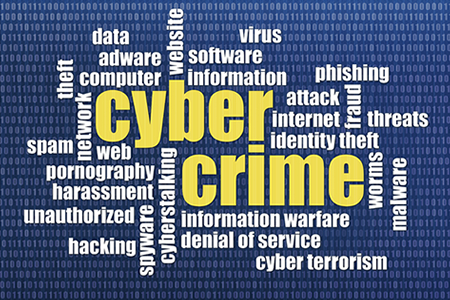
COMPUTER SECURITY
Have you heard the terms listed below? Do you know what they mean? Here are some of the methods computer hackers are using to gain access to your child and your devices:
PHISHING—Emails which seem to come from your bank, from stores where you have online accounts, and from websites which are not really from those places. They try to dupe people into volunteering passwords and financial information. Always use your mouse to “hover” over the address of whom the email is coming from to determine is the address is bogus. Just remember, the IRS is not going to email you!
PHARMING—You type a legitimate address into your web browser, but the address takes you to a hacker site.
DRIVE-BY DOWNLOADS—Malicious code is planted on a legitimate website. When you visit the site, this code can exploit weaknesses in your web browser and quietly infect your device.
EVIL TWIN ATTACKS—Hackers impersonate a wi-fi hot spot, jamming a legitimate signal with their own. You think you are logging onto a genuine service, but instead, you are linked to hackers who can steal the personal data you transmit.
SEARCH ENGINE POISONING—You do a search for a particular type of software or information. The sites returned may include authentic-looking sites that may contain malware or viruses which infect your devices.
SPYWARE—Hackers use pop-up ads which contain invitations to download programs and applications. These programs run in the background on your computer and low it down. They may even “track” websites you visit.
KEYLOGGERS—Spyware that resides on your computer and forwards your keystrokes to marketers or hackers so that they know your passwords and web destinations.
Always install virus protection and malware protection on your computer!
Make sure your virus protection software is up to date!
Free download of virus protection/malware software: https://www.avg.com/en-us/free-antivirus-download
